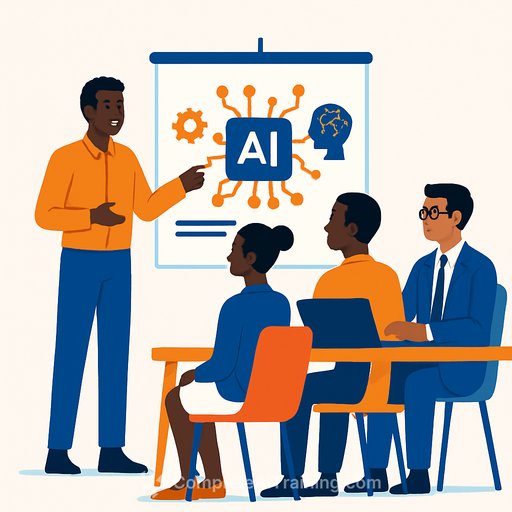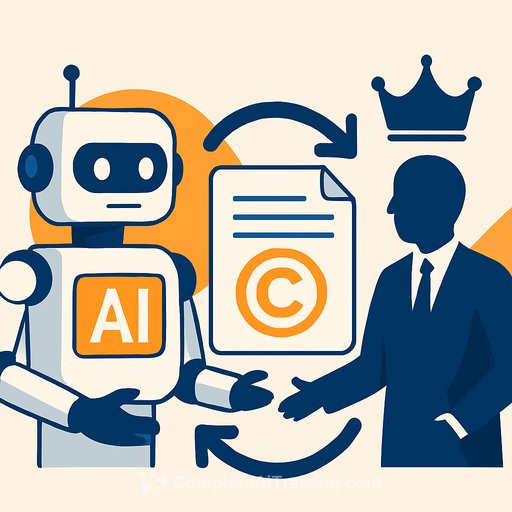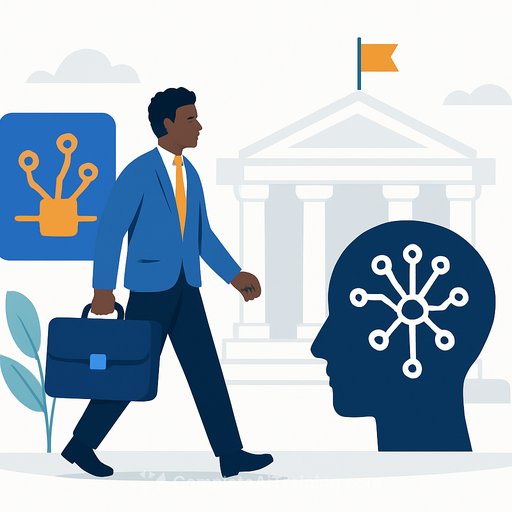Government Partners with Qhala to Boost AI Adoption Across Sierra Leone's Civil Service
Sierra Leone's Ministry of Communication, Technology and Innovation has signed a Memorandum of Understanding with Qhala, a Nairobi-based digital transformation company, to bring practical AI capabilities into the public sector. The agreement was signed during the Sierra Leone Innovation Showcase on the sidelines of UNGA80.
The goal is straightforward: demystify AI for public officials and enable everyday use across ministries and agencies. The program focuses on training, responsible adoption, and measurable improvements in service delivery and decision quality.
What the partnership includes
- AI Masterclass for Policymakers: hands-on sessions for senior officials on practical use, policy implications, and risk controls.
- Q Academy: a learning hub built around 4IR policies, giving teams tools, exercises, and resources to apply AI responsibly.
- Capacity building: targeted support across ministries to embed AI into core workflows and public services.
- Policy development: guidance to craft inclusive and ethical AI policies grounded in local context.
- Cross-sector collaboration: structured engagement with academia, civil society, and the private sector.
Implementation begins later this year, starting with the first 4IR & blockchain hackathon and the AI Masterclass for policymakers.
Why this matters for public officials
AI can reduce backlog, improve response times, and strengthen outcomes when used with clear rules and quality data. Expect faster brief drafting, better evidence synthesis, and tighter controls on routine tasks that consume staff hours.
- Create policy briefs and summaries from long reports and consultations.
- Aggregate citizen feedback and produce clear options for decision-making.
- Streamline case triage and document routing for frontline services.
- Flag anomalies in procurement and grant reporting for review.
- Translate and standardize documents across departments.
- Build simple dashboards from spreadsheets to track KPIs.
How ministries can get ready now
- Run a quick audit of high-volume, rules-based tasks that slow teams down.
- Select 3-5 priority use cases with clear success metrics and data access.
- Nominate an AI focal point per department to coordinate training and pilots.
- Establish data governance basics: access controls, privacy, and audit trails.
- Choose pilot teams, define roles, and set a 60-90 day delivery window.
- Prepare lightweight procurement and risk checklists for AI tools.
Leadership perspectives
Hon. Salima Monorma Bah, Minister of Communication, Technology and Innovation, called the collaboration a key step in Sierra Leone's digital transformation. The focus is practical use across the civil service to make government more efficient, data-driven, and responsive to citizens.
Dr. Shikoh Gitau, CEO and Founder of Qhala, underscored the need to build local skills so policymakers can design and use AI systems that are ethical, inclusive, and grounded in local realities.
Guardrails and accountability
- Use AI as an assistant, with human oversight on sensitive decisions.
- Document data sources, assumptions, and model limitations.
- Apply fairness checks and publish clear redress channels for citizens.
- Prioritize local context and language in datasets and evaluations.
Training pathways
Officials will gain access to the AI Masterclass and Q Academy as core learning tracks. For teams seeking additional practice by role, explore structured options at Complete AI Training - Courses by Job.
What success looks like in year one
- At least 500 public officials trained with assessed competencies.
- 10-15 AI-assisted workflows live across priority ministries.
- 20-40% reduction in processing time for selected services.
- Standard operating procedures for AI use, risk review, and audits.
- Public reporting on outcomes, including citizen satisfaction trends.
This MoU moves beyond talk and into execution: skills, policies, pilots, and measurable results. With clear guardrails and focused use cases, AI can help the civil service deliver faster, fairer, and more reliable services for the public.
Your membership also unlocks:






